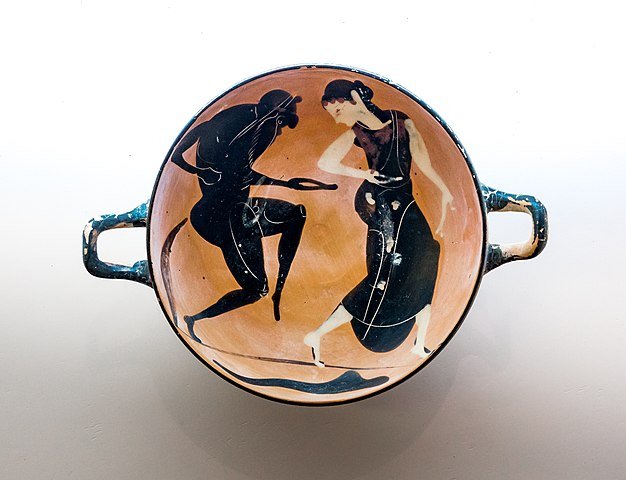Many of Horace’s Odes are performed and translated on Pantheon Poets, but the first poems in the first Book, published in 23 BCE have a particularly important function. The very first Ode makes two very important points at the outset: the debt and affection that Horace feels for his great patron and friend Maecenas, to whom he effectively dedicates the whole collection; and the tremendous ambition that Horace has to create a new and distinctively Roman form of poetry, based on the great Greek lyric models of the past.
In the illustration as in Horace’s poem, a satyr dances in a typically Greek pastoral setting.
Hear Horace’s poetry performed in the original Latin and follow in a new English translation here.






